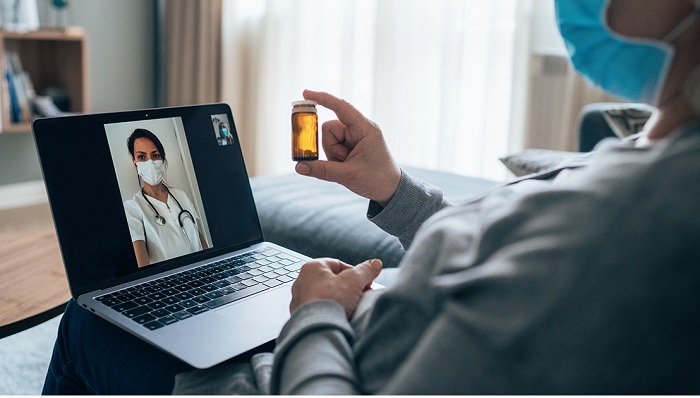Amazon and Walmart, two significant players in the healthcare disruption, have joined a chorus of hospitals, provider groups, and telehealth organisations in calling on the U.S. Senate to expand telemedicine versatility, including removing in-person prerequisites for virtual behavioural health and expanding access to online health in the commercial market.
As things stand, the COVID-19 pandemic-related policies are scheduled to expire 151 days after the conclusion of the public health crisis. According to Politico, the PHE is presently scheduled to end in October, but health authorities anticipate that the Biden administration will extend it at that time. Other existing telehealth flexibility options allow for the waiver of provider and patient location restrictions as well as the facilitation of suitable medical controlled substance access without the need for physical presence.
More than 370 groups noted the short-term character of the temporary policies that bring instability to the healthcare system in the combined letter to Senate leadership.
The organisations stated that providers must balance the expense of investments in the technological and clinical facilities required to continue telehealth initiatives at scale against the unpredictability of when these telemedicine policies may terminate. Additionally, patients who use telemedicine as part of their treatment plan may be compelled to return to in-person therapy. They claimed that this is particularly troubling for those who use virtual care to consult specialists who are farther away as well as those who receive ongoing distant care for chronic diseases.
The Consumer Technology Association, the American Telemedicine Association, the Connected Health Initiative, the Alliance for Connected Care, and HIMSS are among the organisations that also signed the letter. The groups sponsoring the letter believe that virtual care is now an essential component of the American healthcare system and has been proven to increase both access and care continuity. They requested a two-year renewal of the telehealth flexibility.
The letter stated that even though many of the most appealing clinical use instances for virtual care are still in their infancy, more people than ever have seen firsthand the potent effect telehealth has had on closing care gaps. Telehealth is assisting in addressing the critical personnel shortages in primary care, mental health, and other fields. Communities that were previously underserved now get more assistance, the organisations said. However, they claimed that without statutory certainty, efforts to develop infrastructure, trust, and connections with communities are starting to stop.
The letter urges Congress to keep pushing for a long-term extension and supports the approval of the Advancing Telehealth Beyond COVID-19 Act, which the House approved by a vote of 416 to 12.
The PHE that was signed on July 15 will expire in the middle of October. Before declaring the end of the public health emergency, Xavier Becerra, Health and Human Services Secretary, has agreed to give providers 60 days’ notice.
Hospitals and other service providers are given time by the notification to get ready for the termination of exemptions and other flexibilities that were implemented during COVID-19. After the PHE is over, the Consolidated Appropriations Act of 2021 will increase the availability of telehealth services for the diagnosis, assessment, or treatment of mental health issues.
The Advancing Telehealth Beyond COVID-19 Act, which was approved by the House in July, would permit federally qualified health centres and rural health clinics to act as the distant site or the location of the healthcare practitioner; it would permit recipients to obtain telehealth services at any site, irrespective of its nature or location; it would permit any kind of practitioner to provide telehealth services, pending approval by the Centers for Medicare and Medicaid Services; and it would permit telehealth services to be provided by any organisation.
According to recent UnitedHealth Group research, there are drawbacks to telemedicine in addition to its benefits. A poll of 240 healthcare professionals revealed that while 28% of them found virtual care to be annoying, the majority (69%) of them found telehealth to be convenient.
While both might appear to be opposing terms, clinicians provided some insight into their thoughts when they stated that 58% of them were disappointed with the level of care they could deliver through virtual platforms and that 55% of them had to control patients’ expectations for virtual visits. The technical aspects of using telehealth frustrated half of the responders.
Even if telehealth’s attraction has slightly waned, patients still overwhelmingly like it. Based on a December 2021 Rock Health study, 53% of respondents preferred live video virtual care to in-person contacts in 2020. However, only 43% of respondents said they were satisfied in 2021, a slight decline from the previous year.


















